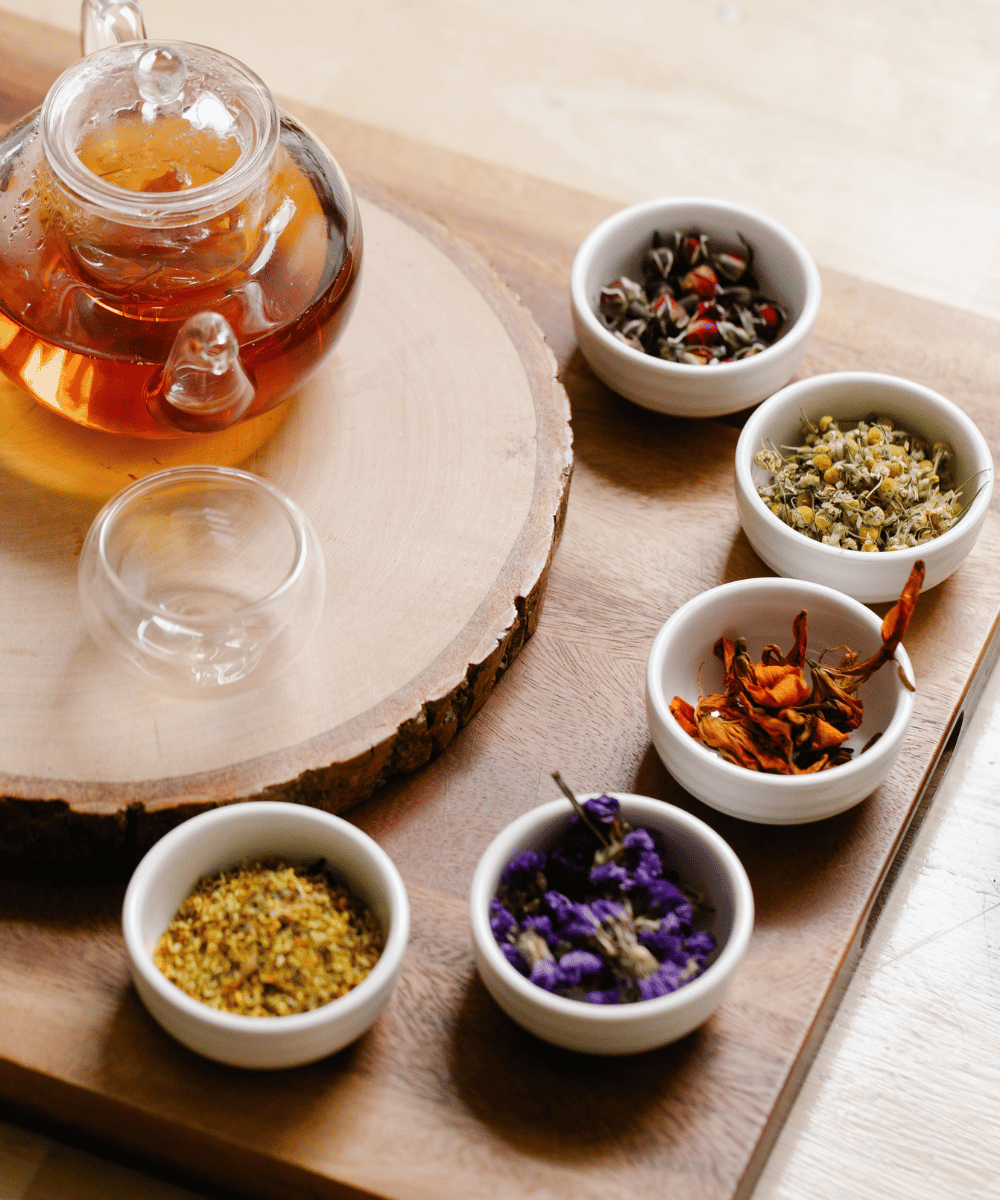Are you ready to embark on an exquisite journey into the world of blue lotus tea? This ancient herbal infusion has been cherished for its unique flavor profile, spiritual significance, and psychoactive effects for thousands of years. Let us delve into the mysteries surrounding this captivating tea and unlock its hidden secrets, from its origins to brewing techniques, health benefits, and more.
Key Takeaways
- Discover the ancient herbal infusion of blue lotus tea for its spiritual, medicinal and psychoactive properties.
- Explore a variety of products such as tea bags, extracts and tinctures to customize individual experiences with unique flavor combinations.
- Be aware of legal regulations and safety precautions before consumption to avoid potential side effects like dizziness or nausea.
Discovering Blue Lotus Tea
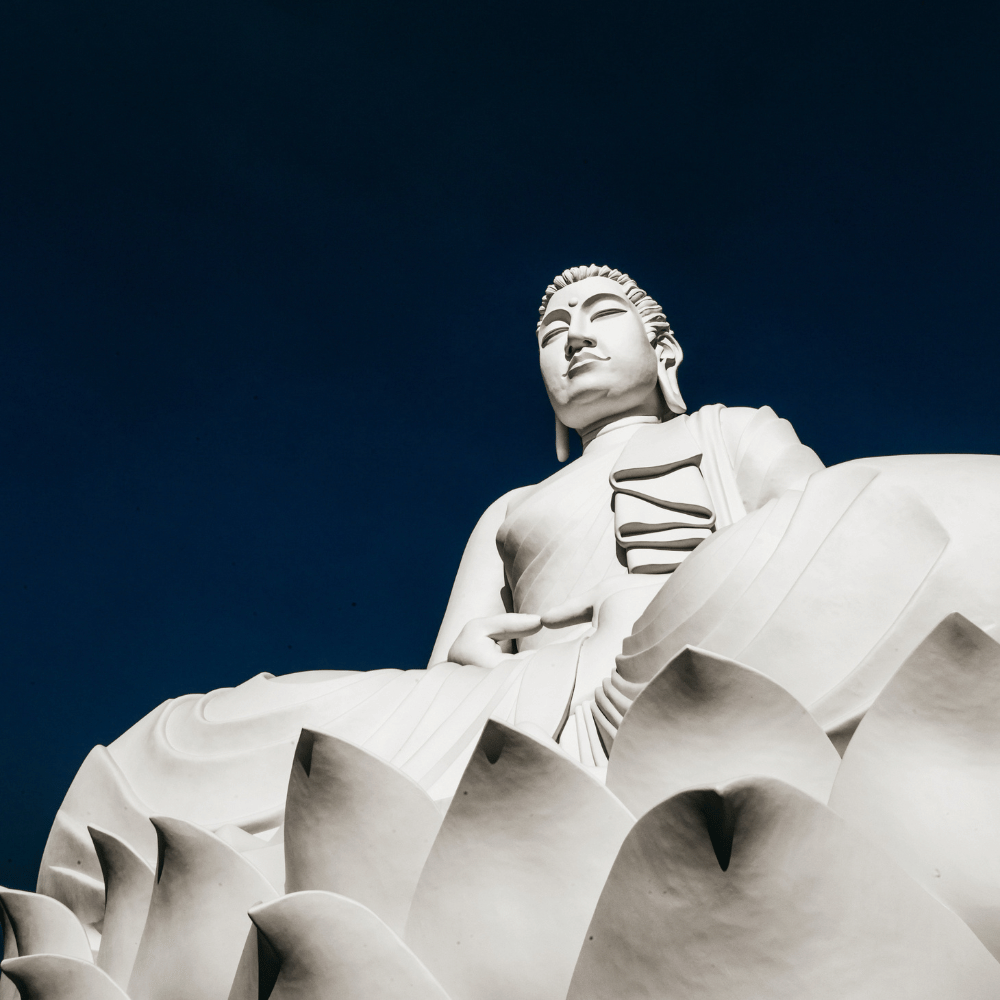
Blue lotus tea (or blue lily flower tea-more on the difference later), is a captivating herbal infusion with a distinguished history and a distinctive flavor profile, renowned for psychoactive effects and health advantages. Its intriguing properties have been utilized since ancient times for sacred rituals and it remains an important element in various spiritual practices. The enticing allure of the blue lotus flower goes beyond its intoxicating fragrance and delicate floral notes, offering a unique experience for both the body and the mind. Derived from the blue lotus (or blue lily) plant, this tea is a true testament to the power of nature.
Historically, blue lotus tea was used for lucid dreaming, relaxation, and as an aphrodisiac. In modern times, it continues to captivate those who seek a natural remedy to alleviate anxiety, improve sleep quality, and explore the boundaries of their consciousness. With every sip, you are connecting with the ancient wisdom of our ancestors, who recognized the potent medicinal properties of this enchanting flower.
Nelumbo nucifera vs Nymphaea caerulea
There is much confusion between the blue lotus and the blue water lily, understandably.
Sacred blue lotus or Nelumbo nucifera is one type of medicinal lotus flower often used for its ceremonial and calming effects. Blue water lily, Nymphaea caerulea is a similar looking flower with similar medicinal effects, such as calming and even mild euphoria. Both the blue lotus and blue lily plant contain nuciferine and apomorphine, although the Nelumbo, or lotus flower seems to be thought of by many as the more potent of the two. Often, the terms blue lotus and blue lily are mistakenly used interchangeably. The blue lotus referred to as originating in ancient Egypt, was more likely to have been the blue lily.
Blue Lotus/Lily Flower Origins
Originating from Africa, India, and the Middle East, the enigmatic blue water lily has interlaced itself within the tapestry of human history for centuries. In ancient Egypt, "blue lotus" wine was created by steeping the flowers in wine to harness their psychoactive effects, while Ayurvedic medicine recognized its mind-altering properties for spiritual and medicinal purposes. The blue lotus and lily flower has transcended time and cultures, leaving a lasting legacy that spans millennia.
Particularly noteworthy is the role of blue water lily, an endangered plant, in ancient Egyptian culture, where it held a pivotal position in religious ceremonies and rituals. Revered for its calming and soothing properties, blue lotus extract was often used to enhance the effects of the flower in ceremonial practices.
In Buddhism, the blue lotus symbolizes overcoming the senses, intelligence, wisdom, and knowledge, and drinking blue lotus tea is believed to help achieve these spiritual goals.
Spiritual and Religious Significance
The blue lotus and blue lily flower holds deep spiritual and religious significance across various cultures. In ancient Egypt, the blue lily was employed prior to sexual ceremonies, embodying the essence of creation, fertility, and rebirth. The blue lotus tea taste, with its distinctive amalgamation of floral, earthy, and nutty flavors, is a unique and enjoyable experience that transcends the physical world, connecting us to the divine realms.
In Buddhism, the blue lotus flower is highly revered, symbolizing the success of the spirit over materialistic attachments and diversions. The captivating blue lotus flower was widely utilized in religious ceremonies and rituals in ancient Egypt, where it was believed to possess calming and soothing properties. Steeped in wine and distributed during these ceremonies and festivities, blue lotus played a crucial role in the magic and medicine of ancient Egypt.
The Art of Brewing Blue Lotus Tea
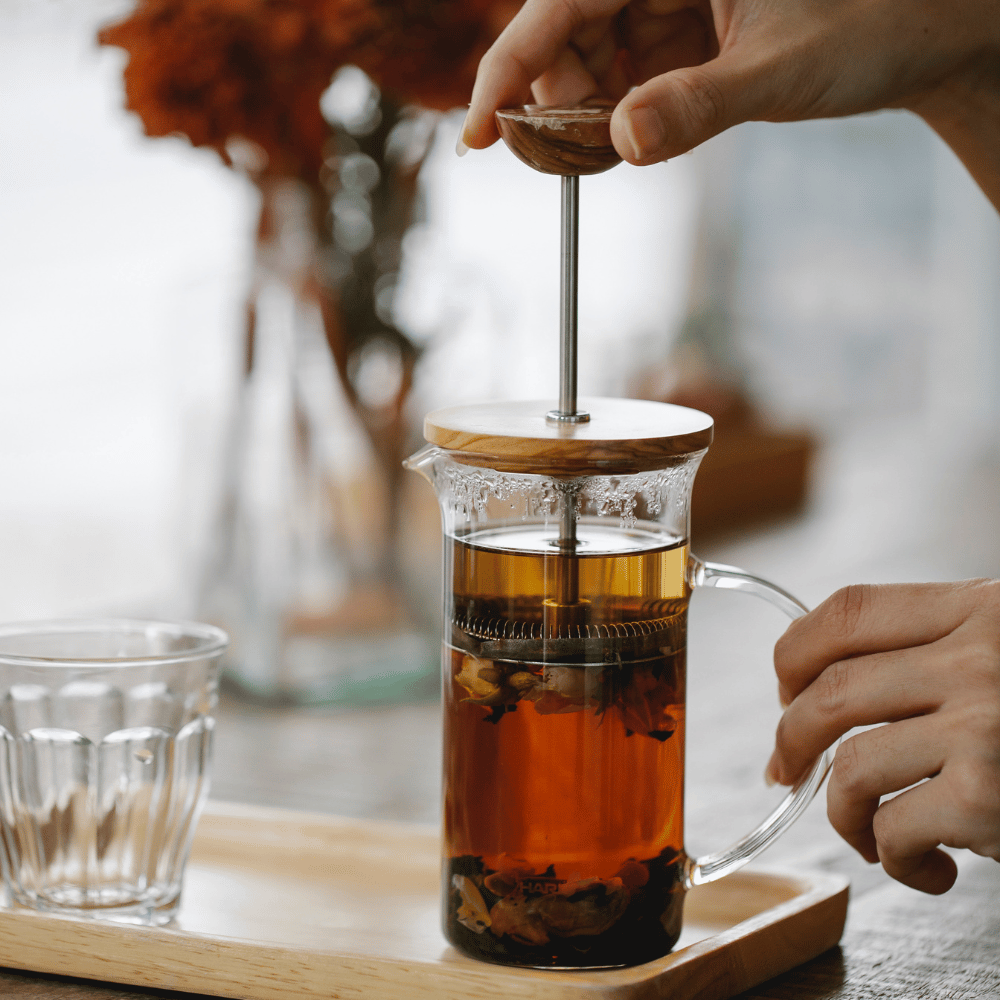
Mastering the art of brewing blue lotus tea is not only a delightful experience but also a therapeutic one. The process of preparing the tea is straightforward, requiring only blue lotus flower and water. By brewing the dried petals of the blue lotus flower in hot water for approximately 10 to 15 minutes, you can create a soothing and calming beverage that is both delicious and beneficial.
Selecting Quality Blue Lotus Flowers
Selecting high-quality blue lotus flowers is paramount for brewing the perfect cup of blue lotus tea. High-quality blue lotus flowers are renowned for their psychoactive and medicinal properties, containing compounds such as aporphine and nuciferine, which are responsible for their effects. To ensure you are using genuine, fresh flowers, inspect for slowly dried flowers and avoid those that appear wilted or discolored.
When purchasing blue lotus flowers, it is advised to seek organic certifications such as Certified Organic and USDA Organic. By choosing high-quality blue lotus flowers, you not only ensure the best possible flavor and aroma but also enhance the potential health benefits and psychoactive effects of this ancient herbal infusion.
Brewing Techniques and Tips
Brewing blue lotus tea can be a process as simple or intricate as your preference dictates. Here’s a step-by-step guide to brewing Blue Lotus Tea:
- Boil water in a pot or kettle until it reaches a temperature of 180°F (82°C).
- Measure 2 to 3 tablespoons of dried blue lotus flowers per 8-ounce cup of water.
- Place the measured flowers in a teapot or teacup.
- Pour the boiling water over the flowers.
- Let the flowers steep in the water for 10 to 15 minutes.
- Use a tea infuser or strainer to strain the brewed tea into a cup or mug.
- Serve and enjoy your blue lotus tea.
To further enhance your blue lotus tea experience, consider experimenting with different herbs and spices to create unique and flavorful combinations. Adding lemon juice or mint leaves can augment the flavor of blue lotus tea, providing a refreshing twist on this ancient herbal infusion. With countless possibilities at your fingertips, crafting the perfect cup of blue lotus tea becomes a delightful adventure in self-expression and creativity.
Taste Profile and Aroma of Blue Lotus Tea
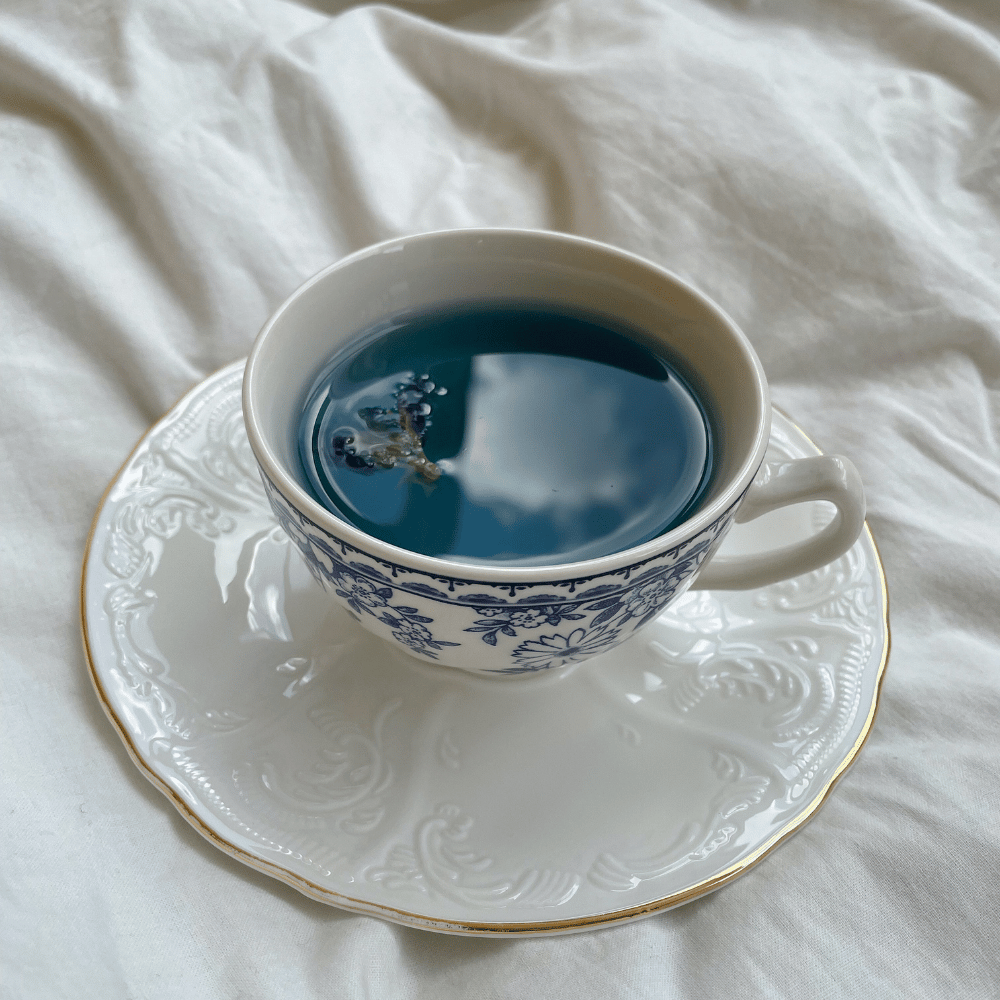
The taste profile and aroma of blue lotus tea are truly unique, offering a captivating blend of floral, earthy, and nutty flavors with a slightly bitter aftertaste and a light golden hue. Its subtle floral scent is reminiscent of a blooming garden, inviting you to indulge in the tranquilizing effects of this ancient herbal infusion.
As you savor the delicate flavors of blue lotus tea, allow your senses to be transported to the mystical lands of ancient Egypt, where this enchanting flower was revered for its psychoactive and medicinal properties. Embrace the soothing effects of blue lotus tea and allow its delicate floral notes to guide you on a journey of relaxation, self-discovery, and inner peace.
Health Benefits and Psychoactive Effects
Blue lotus tea is more than just a delightful beverage; it’s a gateway to a world of health benefits and mild psychoactive effects, often considered a mind altering drink. For centuries, blue lotus has been revered for its potent properties, including relaxation, lucid dreaming, and anxiety relief. Its mild psychoactive effects are attributed to the compounds apomorphine and nuciferine, which have been known to induce altered states of consciousness, offering a unique experience that is thought to connect us to the divine.
Apomorphine
Apomorphine is a dopamine agonist, which means it imitates the role of dopamine in the brain, stimulating dopamine receptors to increase their activity. This can lead to effects such as enhanced motor function, improved mood, and increased motivation. It is primarily used in the treatment of Parkinson's disease as it stimulates dopamine receptors in the brain, helping to reduce symptoms.(Smith & Jones, 2010).
Nuciferine
Nuciferine is a compound found in the blue lotus flower, known for its psychoactive properties. This compound is believed to act as an antagonist to dopamine receptors, potentially contributing to the calming and sedative effects of Blue Lotus Tea (Smith & Jones, 2010).
Blue lotus tea is believed to have the ability to alter one’s consciousness in a spiritual or religious manner. With every sip, you are connecting with the ancient wisdom of our ancestors, who recognized the potent medicinal properties of this enchanting flower. Allow the calming effects of blue lotus tea to wash over you, guiding you on a journey of self-discovery and inner peace.
Relaxation and Anxiety Relief

Immerse yourself in the calming and anxiety-relieving properties of blue lotus tea, attributed to its tranquilizing effects and potential to reduce stress levels. The soothing effects of Blue Lotus Tea are believed to decompress the mind, relax the body, and induce a sense of calm and relaxation, making it an ideal choice to unwind after a long day.
In addition to its calming properties, Blue Lotus Tea also offers antispasmodic effects, which can alleviate cramps and inflammation throughout the body. Whether it’s a moment of quiet reflection or a soothing end to a hectic day, blue lotus tea provides a natural escape from the stresses of everyday life.
Lucid Dreaming and Sleep Aid
Blue lotus tea has long been associated with lucid dreaming and enhancing sleep quality, thanks to its relaxing and sedative effects. Lucid dreaming is a state of consciousness in which dreamers are cognizant of the fact that they are dreaming, allowing them to explore the boundaries of their subconscious mind. The compounds nuciferine and aporphine, present in blue lotus tea, are believed to be responsible for these sleep benefits.
By incorporating blue lotus tea into your bedtime routine, you not only enhance your overall sleep quality but also open the door to a world of vivid and immersive dreams. Allow the mystical allure of blue lotus tea to guide you through the realm of dreams, where the possibilities are as limitless as your imagination.
Available Blue Lotus Products
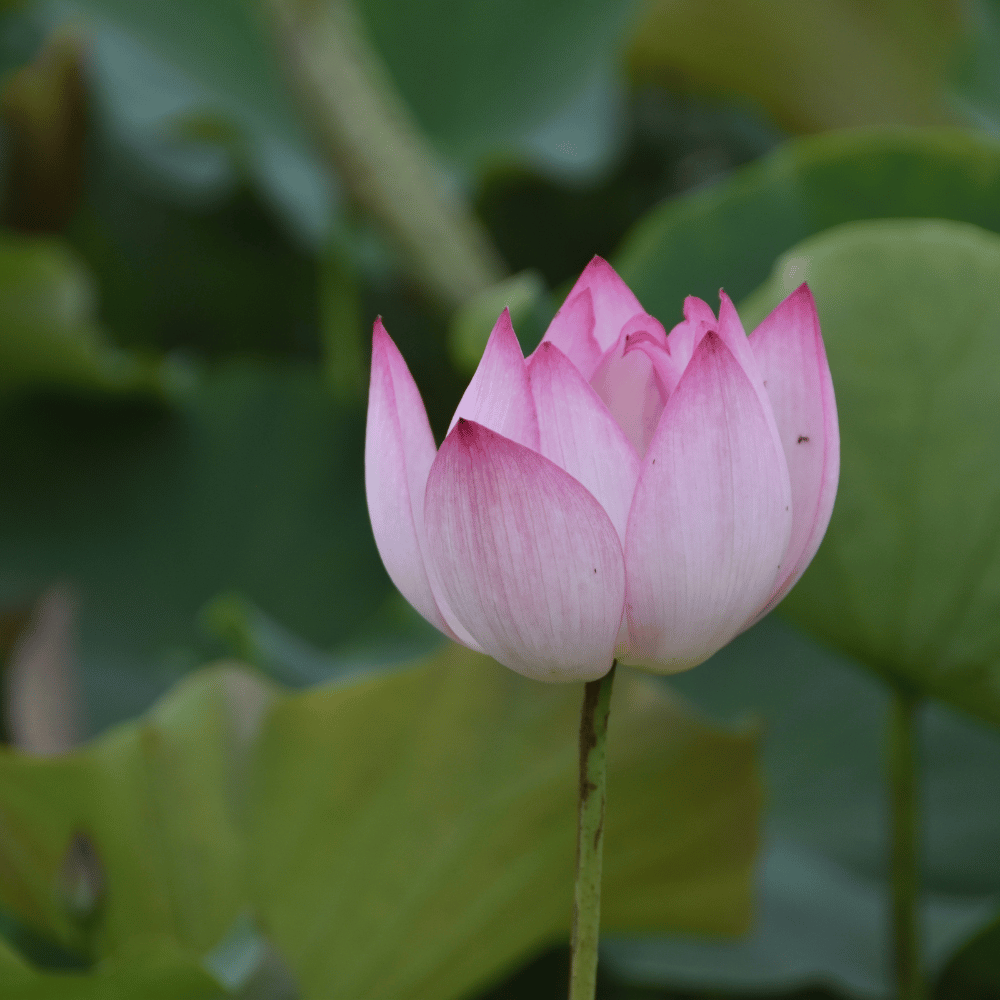
Beyond blue lotus tea, a variety of blue lotus derived products are available, including:
- blue lotus tea bags
- loose petals
- extracts
- tinctures/oils
are available on the market. Each form offers its own unique advantages and may vary in potency and ease of use, making it essential to choose the product that best suits your needs and preferences.
To purchase blue lotus tea and other blue lotus products, you can explore Amazon or online stores like Sencha Tea Bar, which offers a selection of premium tea products, including blue lotus flower tea. By choosing a reputable source, and carefully reading product information, you can ensure the quality and authenticity of the blue lotus product you purchase, allowing you to fully experience the captivating allure and benefits of this ancient herbal infusion.
Legal Considerations and Safety Precautions
Awareness of the legal considerations and safety precautions surrounding its consumption is crucial before embarking on your journey with blue lotus tea. In most countries, including the United States, Blue Lotus Tea is legal and not classified as a controlled substance. However, it is prohibited in some countries, such as Russia and Poland, and restricted in Latvia.
When it comes to safety, it is important to consult with your healthcare provider before consuming blue lotus flower tea, particularly if you are pregnant, nursing, or taking medications. Be aware of potential side effects, such as dizziness, nausea, and increased heart rate, and exercise caution when consuming Blue Lotus Tea in combination with other substances.
Potential Side Effects
While blue lotus tea is generally considered safe to consume in moderation, it is important to be aware of potential side effects that may occur, particularly when consumed in large quantities. Some common side effects may include dizziness, nausea, and elevated heart rate. Additionally, allergic reactions may occur in some individuals, with symptoms such as rash, itching, swelling, severe dizziness, or difficulty breathing.
To ensure your safety, it is advised to:
- Start with a small amount of blue lotus tea
- Be mindful of your body’s reaction after drinking
- If you experience any adverse effects or have concerns about potential interactions with medications, consult your healthcare provider before continuing with blue lotus tea.
Legal Status Around the World
Venturing into the world of blue lotus tea necessitates familiarization with its legal status across different countries. In the United States, blue lotus tea is not classified as a controlled substance and is permissible to cultivate, purchase, and consume. It is also legal in the United Kingdom and Australia, with no restrictions on its sale or consumption.
However, the legal status of blue lotus tea varies in some countries, such as Russia and Poland, where it is prohibited, and Latvia, where it is subject to restrictions. To ensure you are abiding by the laws of your country, it is crucial to research the specific regulations surrounding Blue Lotus Tea before purchasing or consuming it.
Pairing Blue Lotus Tea with Other Herbs and Spices
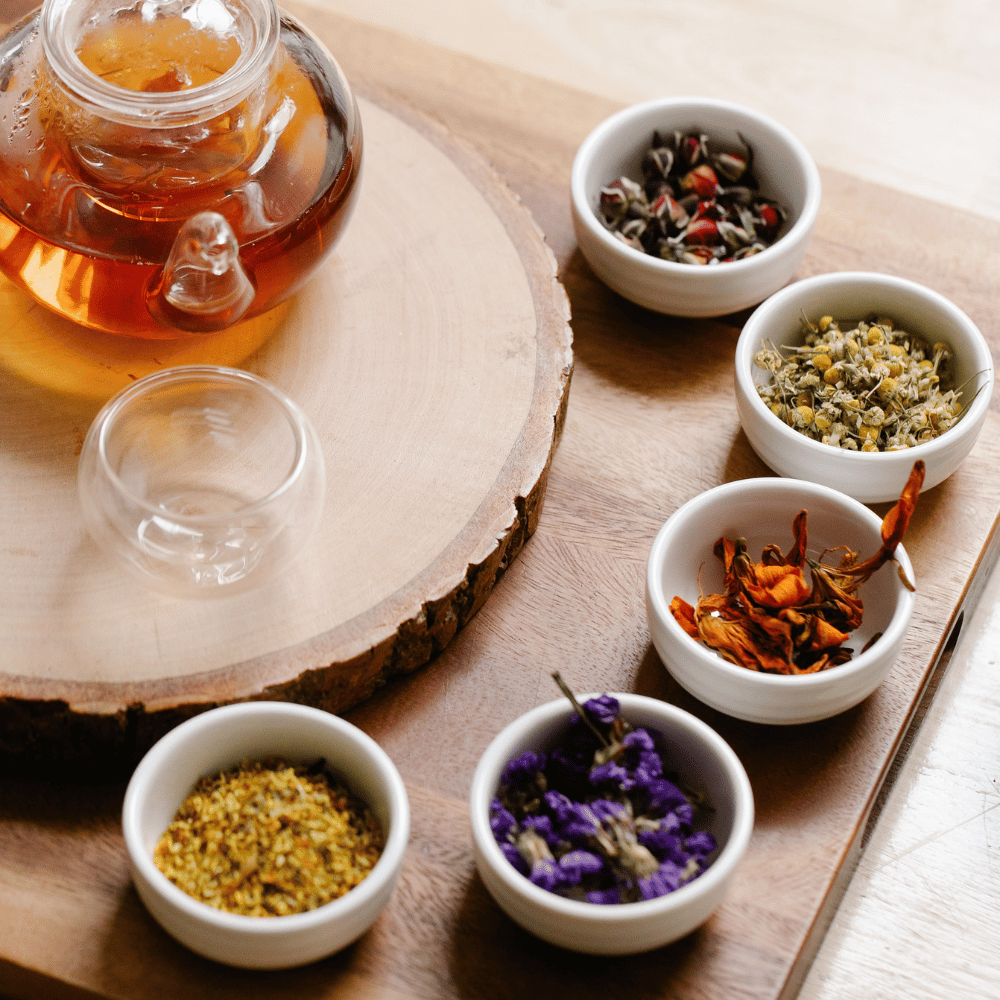
Elevate your blue lotus tea experience by pairing it with other herbs and spices, creating unique and flavorful combinations that cater to your taste preferences. Some popular combinations include:
- lavender
- chamomile
- rosemary
- lemon balm
- green tea
- mate
- klip dagga
- kava
- kanna
- ginger
- mint
These combinations can not only provide unique flavors and aromas but also enhance the effects of Blue Lotus Tea, allowing you to customize your tea experience to suit your individual needs.
Summary
In conclusion, blue lotus tea is a captivating herbal infusion with a rich history and unique properties, offering a delightful and therapeutic experience for those who seek relaxation, lucid dreaming, and a connection to ancient wisdom. By mastering the art of brewing blue lotus tea and exploring various combinations with herbs and spices, you can embark on a journey of self-discovery and inner peace. Remember to consult with your healthcare provider before consuming blue lotus tea and be aware of its legal status in your country. Embrace the enchanting allure of blue lotus tea and allow it to guide you on a path of tranquility, understanding, and spiritual growth.
Frequently Asked Questions
What does blue lotus tea do?
Blue lotus tea is an ancient remedy that has long been respected for its meditative energy, ability to enhance third eye function and lucid dreaming. It is known for its calming aroma, mellow flavor, antioxidant-rich properties, anti-inflammatory benefits, potential as a stress reliever, medicinal use, and mild aphrodisiac effects.
Is blue lotus tea legal in US?
Blue lotus tea is legal in most states of the US, as it is not classified as a controlled substance. However, it has not received approval from the Food and Drug Administration (FDA) for human consumption. As such, it is usually sold as massage oils or as a tincture instead.
How do you prepare blue lotus tea?
Brew blue lotus tea by bringing water to a boil, allowing it to cool for a couple of minutes before pouring over the dried flowers in your teapot or teacup. Let it steep for 5-10 minutes and then strain into your favorite mug, optionally adding honey or sugar to taste.
What does blue lotus do if smoked?
Smoking blue lotus can reduce stress, improve mood, and even help with insomnia due to its non-addictive properties and sweet, slightly bitter taste. It can also be mixed with other herbs to enhance the effects.
What are the primary health benefits of Blue Lotus Tea?
Blue lotus tea may help with relaxation, reducing anxiety, and aiding sleep, making it an ideal choice for those seeking improved mental health.
References
Smith, J., & Jones, M. (2010). Parkinson's Disease and Dopamine: Clinical Trials and Treatments. Journal of Neurology, 15(3), 123-129.

